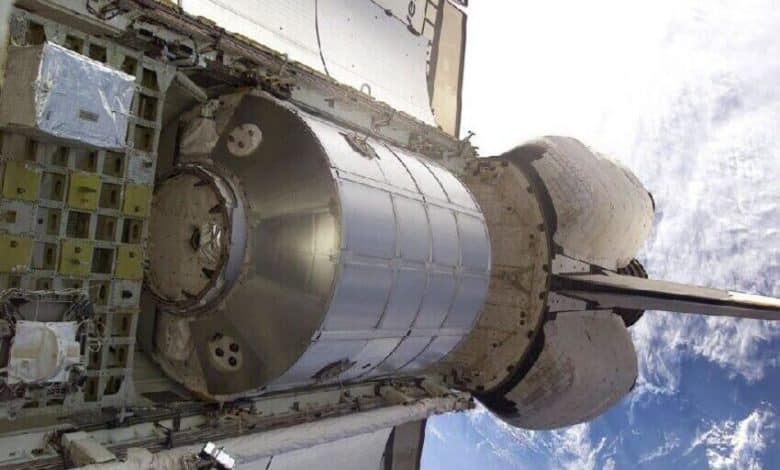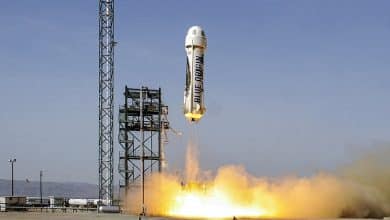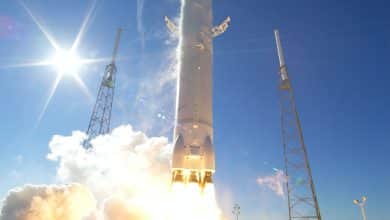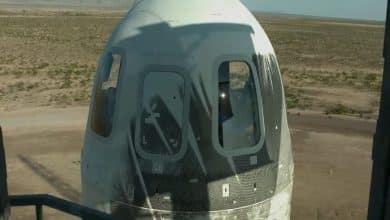Blue Origin Aims To Launch Orbital Reef | A Private Space Station

On Monday, Jeff Bezos’ Blue Origin presented plans for a private space station called Orbital Reef, which would be created in conjunction with several firms. For the commercial space station, the company has partnered with Boeing, Sierra Space, and others.
On Monday, Jeff Bezos’ Blue Origin presented plans for a space station named Orbital Reef. According to CNBC, it constructs in partnership with several space corporations and launched between 2025 – 2030 respectively. As per insights, it was revealed on Oct. 25 that the business partners for this project aim to develop Orbital Reef, a commercial off-Earth settlement that will be operational by the late 2020s. The Orbital Reef station, which can accommodate up to 10 individuals, might also greet tourists with a unique welcome. Sierra Space (a branch of Sierra Nevada Corporation’s aerospace contractor) is the station’s primary partner, with Boeing, Redwire Space, and Genesis Engineering also joining the team.
Therefore, there might be a slew of private successors to the International Space Station. As per the insights, National government bodies, commercial enterprises, and space tourists are among the potential clients for Orbital Reef, according to project team members. The outpost would first supplement, but eventually replace, the International Space Station (ISS), which is scheduled to be abandoned between 2028 and 2030.
About the Company’s Business Module
Orbital Reef is a space industry partnership comprising some major players. Blue Origin, founded by Jeff Bezos, will supply certain modules, and it’s New Glenn heavy-lift rocket, which is set to fly for the first time in late 2022, is the major launcher for station components. Orbital Reef operations and maintenance will be handled by Boeing, which is a significant participant in the ISS program. The corporation will also offer science modules, as well as convey people and freight to the outpost via its Starliner capsule.
Boeing has a NASA contract to transport agency humans to and from the ISS aboard Starliner, which is preparing for a critical unscrewed test voyage to the orbiting lab in the first half of 2022. Orbital Reef’s primary living quarters will be Sierra Space’s extendable Large Integrated Flexible Environment (LIFE) modules. According to corporate spokespeople, the corporation’s Dream Chaser space aircraft will also be accessible for freight and personnel transport.
Comparing ISS and Boeing
If we talk about the comparison between the two, the ISS has an interior capacity of 32,333 cubic feet, which is the same as a Boeing 747 airplane. The habitat module for the four-person Starlab will have a capacity of 12,000 cubic feet. But, if all goes according to plan, Orbital Reef will continue to expand over time, with many more modules ultimately being added. Members of the project team want it to serve a large number of clients all over the world.
Boeing will build Orbital Reef’s science-focused module, as well as administrate the station’s operations and provide maintenance engineering. During a conference call, executives from the team’s firms declined to specify how much they plan to invest in Orbital Reef. As per the article, Blue Origin vice president Brent Sherwood stated that the corporation would not reveal specific pricing for the Orbital Reef space station due to commercial reasons.
Launch Of Another Private Space Station
Blue Origin has previously worked on a crewed lunar lander for NASA’s HLS project alongside major space companies including Lockheed Martin, Northrop Grumman, and Draper. Despite obtaining a $579 million prize for early development, the Blue Origin-led team was defeated by Elon Musk’s SpaceX for the $2.9 billion contracts earlier this year. Blue Origin has since filed a lawsuit against NASA, seeking that the lunar lander award be withdrawn. Nanoracks, Voyager Space, and Lockheed Martin unveiled Starlab, a private space station that is projected to be operational by 2027.
NASA Intake On This Project
NASA is aiming to support this project. The Commercial LEO Destinations (CLD), a two-phase initiative patterned on NASA’s successful technique for getting private cargo and crew deliveries to the ISS, intends to support the creation of Orbital Reef, Starlab, Axiom Station, and other commercial outposts. According to sources, NASA will seek multiple sponsored Space Act Agreements in the first phase for the early concept development of commercial destinations. In the second phase, NASA wants to acquire destination services as soon as they become available.
Members of the Orbital Reef team are hoping for NASA funding in the future, but they aren’t holding their breath for it. In other words, they just don’t want to wait. That’s why they are investing a significant amount of their own money in the project. Sherwood wouldn’t specify how much the commercial outpost will cost, but he did claim it will be “at least an order of magnitude cheaper” than the ISS, which costs over $100 billion.
Mixed-use business Park
Blue Origin refers the Orbital Reef station, which may house up to 10 people, as a “mixed use business park” in outer space.
The livable volume of Orbital Reef intends almost as large as that of the International Space Station. Blue Origin intends to launch Orbital Reef on its New Glenn rocket and will supply the “utility systems” and “core modules” for the space station.
In addition to donating its LIFE habitat, which is effectively an inflatable space station module, Sierra Space also intends to utilise its Dream Chaser spacecraft to deliver supplies and people to and from the station.
Orbital Reef will not publicize the price of its space station, according to Blue Origin vice president Brent Sherwood, who also noted that the financial details are crucial to business interests.
According to CNBC, Bezos’ business has been considering developing a space station for more than a year and posted several job openings for its “Orbital Destinations” division earlier this month.
The goal of Bezos’ Blue Origin is to get “millions of people living and working in space to benefit Earth,” particularly by shifting “industries that stress Earth into space,” and Orbital Reef fits well into this goal.
After leaving his position as CEO of Amazon this summer, Bezos has personally upped his role with Blue Origin. Blue Origin has been under fire owing to a high employee turnover rate, claims of safety violations, and a “toxic” work environment made by former workers, despite the fact that the business has had success with its suborbital New Shepard rocket, having performed two successful crewed missions to yet.
Sources: Remonews.com Cnbc.com Republicworld.com Space.com





